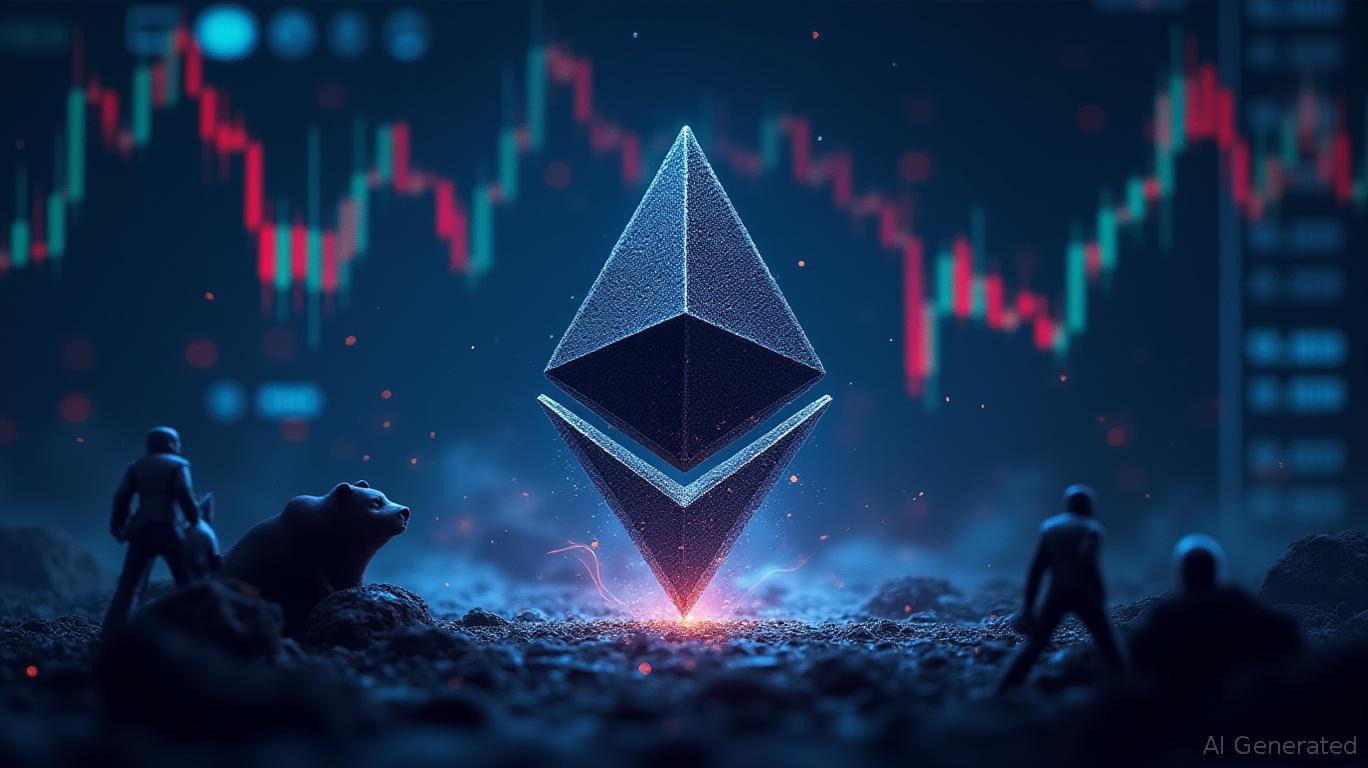Trade Pause Prevents Further Tensions, Yet U.S.-China Technology Dispute Remains Unsettled
- U.S. and China announce "Busan Truce" at APEC summit, agreeing to cut tariffs, stabilize supply chains, and resume U.S. agricultural exports to China. - Tech tensions persist as U.S. maintains AI chip export bans on China, while China suspends investigations into U.S. semiconductor firms. - Global markets rise on trade optimism, but analysts warn past agreements like 2020's Phase One deal have failed due to noncompliance and geopolitical friction. - U.S. farmers gain short-term relief with China pledging
At the Asia-Pacific Economic Cooperation (APEC) summit in Gyeongju, South Korea, leaders wrapped up their meeting with cautious hope following the announcement of a temporary trade ceasefire by U.S. President Donald Trump and Chinese President Xi Jinping. This arrangement, referred to as the "Busan Truce," represents a notable easing in the ongoing trade dispute between the U.S. and China. Both countries have agreed to lower tariffs and work towards stabilizing supply chains, as reported by an

After Trump’s early exit from the summit, Xi Jinping took the spotlight, reaffirming China’s support for multilateral cooperation and open global trade, according to
Despite the progress, disputes over technology and semiconductors remain unresolved. Jensen Huang, CEO of Nvidia, whose company is still prohibited from selling advanced AI chips to China, expressed doubts about whether the summit would help his business regain access to the Chinese market, as reported by
Financial markets responded favorably, with stocks and commodities climbing on expectations of more stable trade, as noted by STL News. The agreement also includes steps to address fentanyl trafficking, with China promising tighter regulation of precursor chemicals, Cryptopolitan reported. However, experts warn that the longevity of the deal is uncertain. Previous U.S.-China trade agreements, like the 2020 Phase One deal, have stumbled due to lack of compliance and ongoing political tensions. North Korea’s strong criticism of South Korea’s denuclearization talks with China highlights the region’s ongoing sensitivities, U.S. News reported.
For American farmers, especially those in the Midwest, the pact offers vital support after years of export disruptions. China’s pledge to buy 12 million metric tons of soybeans this year and 25 million annually through 2028 could bring significant revenue to rural communities, Cryptopolitan reported. The energy and manufacturing industries are also set to gain from reduced input costs and eased rare-earth restrictions, though details on enforcement remain unclear, according to STL News.
Although the Busan Truce provides short-term relief, deeper issues remain. Both countries are under internal pressure to maintain firm positions on matters such as Taiwan and intellectual property. A joint committee will be established to monitor compliance, but its effectiveness is still in question, STL News noted. For now, the truce offers a fragile but much-needed pause in a rivalry that has influenced global trade for many years.
Disclaimer: The content of this article solely reflects the author's opinion and does not represent the platform in any capacity. This article is not intended to serve as a reference for making investment decisions.
You may also like
Ethereum News Update: Ethereum Holds $3K—Bears Apply Pressure as Large Investors Anticipate Recovery
- Ethereum's price fell below $3,100 as $2.6B options expiration on Deribit intensified bearish pressure, with key support at $3,000 under threat. - Q3 ETF inflows ($9.6B for ETH vs $8.7B for BTC) contrasted with recent $327M outflows, signaling institutional caution amid market downturn. - BlackRock transferred $1B in crypto to Coinbase Prime for custodial rebalancing, highlighting institutional confidence despite ETF redemptions. - Whale HyperUnit opened $55M long positions on ETH/BTC, while large ETH wi

A whale deposited 3.5 million USDC into HyperLiquid and shorted BTC and ETH with 20x leverage.